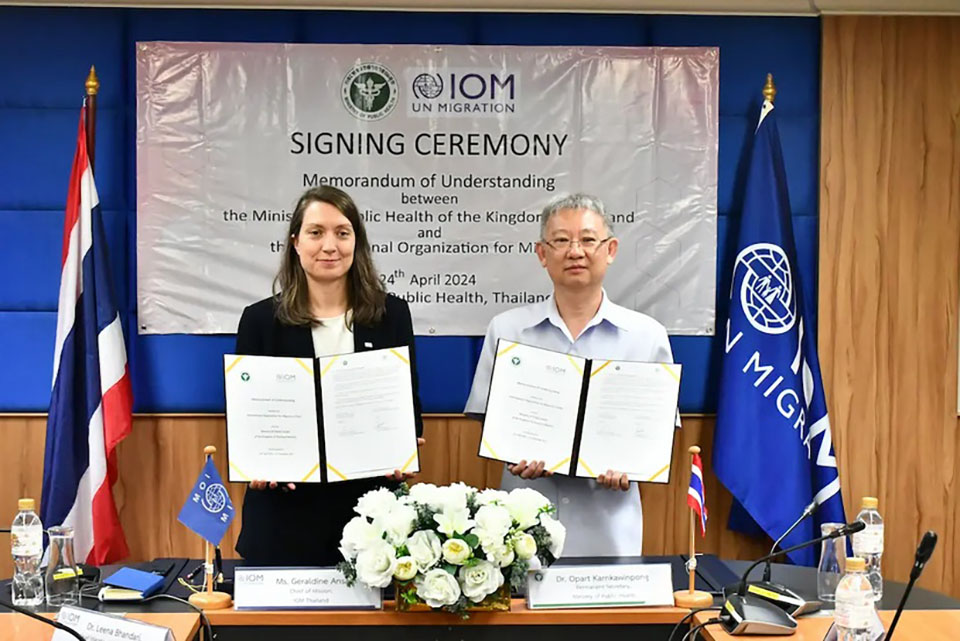
The Ministry of Public Health (MOPH) has signed a memorandum of understanding (MoU) with the International Organization for Migration (IOM). This agreement aims to tackle public health issues among migrant populations in Thailand, enhancing their access to friendly healthcare services. The collaboration seeks to improve healthcare access, promote health, prevent and control diseases, and address environmental health concerns among migrant communities.
The Permanent Secretary of the Ministry of Public Health Dr. Opas Karnkawinpong, M.D., and Chief of Mission for the International Organization for Migration (IOM) in Thailand, Ms. Géraldine Ansart, have signed a memorandum of understanding (MoU) to jointly address public health issues among migrant populations in Thailand. This collaboration aims to instill confidence in the system and enhance access to friendly healthcare services for migrant populations. The MoU has been signed three times previously, starting from the year 2009. This fourth signing extends the duration of the agreement from April 24, 2024, to December 31, 2025.
Dr. Opas stated that the provision of healthcare services to migrant populations under this collaboration focuses on nine key areas:
- Basic healthcare services, including health screenings, health assessments, and basic first aid
- Emergency medical care for migrants in crisis situations
- Reproductive health, sexual health, and child health such as family planning, safe childbirth, nutrition, childhood immunizations, sexually transmitted infections, and HIV/AIDS
- Preventive healthcare services, including vaccination campaigns, as well as health education and awareness
- Mental health and psychosocial support
- Prevention and control of infectious diseases, especially endemic diseases such as dengue fever, malaria, tuberculosis, diarrheal diseases, and emerging/recurring infectious diseases such as COVID-19 and avian influenza
- Environmental health and community sanitation, including ensuring access to clean and safe water sources
- Disaster preparedness and response
- Laboratory testing, including for tuberculosis and COVID-19 (NNT)








